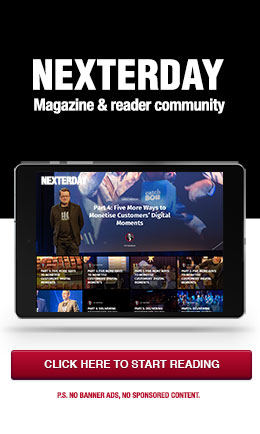Succeeding in OSS Project Engagements – Insights from MEA
Posted: November 11th, 2012 | Author: Afaq Bashir | Filed under: Around the World, Behind the Scenes | Tags: Middle East, OSS, Project Management | No Comments »A learning organisation is the sum-total of the experiences of its people. At Comptel, we take great pride in having delivered on excellent projects, and the lessons we have learned through them are our prised possession. To a large extent, a distinctive pattern begins to emerge from the various projects and engagements conducted in each region. The Middle East and Africa (MEA) is no exception – its unique characteristics come through its many region-specific best practices, as well as the lessons and cultural themes we have accumulated through our commitment to our customers.
When it comes to the success of a project, leadership is an important aspect– from managing project charters and negotiating scopes, to resolving conflicts and involving stakeholders, to addressing resources and process implications. From my experience in MEA, I’ve seen six elements of success emerge that stem from strong leadership.
1. Trademarks
First, it is very important that a project be ‘trademarked’ both internally and externally. This should go hand-in-hand with the company’s corporate strategy and bear an inspiring slogan that attracts everyone’s contribution. Externally, with the customer, the trademark should bear in succinct terms the top 2-3 goals and objectives sought from the project. These should be posted at all times as the overriding milestones for all stakeholders, especially the customer. Internally, this should become more of a symbol that people can relate to in daily activities, when talking by the water coolers, for instance. Last, it should be attached to a group of influential sponsors, decision-makers and key participants, who can help develop an inclination across company ranks to make the project successful.
2. Strong Launch
The project should be kicked off like the Olympics. What I mean by this is that everyone should feel willing and ready to be a part of an exciting new journey. The most important thing is making sure that the project leadership is technology savvy and capable of understanding the complexities involved. A sense of control, responsibility, raw skill and effective management can only be inculcated by a project manager with extensive domain expertise. This, in my humble opinion, can be a deciding factor for a project’s success at the very outset. The project leader should then be able to recruit a balanced team and prepare for a strong launch.
3. Alignment
The project leader should have a comprehensive, organisation-wide understanding of the customer’s business units (e.g. commercial, network, human resources, finance), business processes (TM Forum standards can help), key stakeholders, parallel vendors and existing IT and systems landscape. This helps align the project to all of these various entities, so that any risk is taken care of proactively, and all parties/resources are marshaled to a collective success.
4. Clear Scope
It’s important that the project leader is actively involved alongside any sales staff in negotiating, understanding and freezing the scope of a project. The scope should be very clearly documented and have approval from all key stakeholders. This can involve details such as key objectives, success factors, project scheduling and budgeting, and risks. Again, it takes a project leader proficient in that domain to effectively record the different requirements, needs, assumptions and risks.
5. Communication
The project leader should be able to develop a very clear communications methodology to ensure transparency and a real-time window into the project’s workings. He or she should be able to identify ‘what messages’ need to be passed to ‘which stakeholders’ at ‘what intervals’ through ‘what methods and channels’ with ‘what level of severity’. The communications methodology should be able to integrate and harmonise the many artifacts of project communication including meetings, emails, progress reports, workshops and portals.
6. Motivation
Finally, and perhaps most importantly, the project leader should strive to be a true source of motivation, energy and inspiration for the whole team. A confident and independent leader can take hold of a project without letting control sink away to distant and irrelevant corners of the organisation. He or she should be bold enough to take calculated risks and use the team’s best energies to create win-win situations with the customer. An effective project leader manages and resolves conflicts through creative ideas and through the power of communication. A dynamic leader is imaginative enough to adapt the fabric of the project to the changing strategic needs of the customer and of his or her own organisation. Finally, he or she should be able to culminate all of these leadership themes into closing the project, celebrating it like a hard-earned victory, learning from its course and moving on to the next challenge with a bigger, more self-assured poise.
These types of leaders deliver on strategic opportunities, resulting in increased revenues through cross-sell and up-sell opportunities and references, and ultimately happier customers.






Leave a Reply